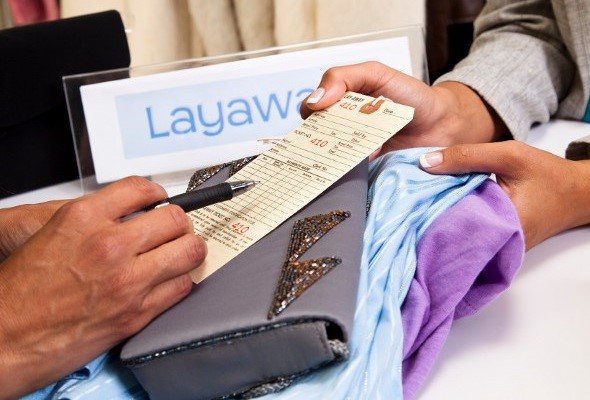Since their debut during the Great Depression, layaway plans have allowed Americans to make large purchases without having to pay for them right away. While a layaway program can be a good alternative to using a credit card to buy holiday gifts, it can be risky as well. If you’re torn between those two payment methods, it’s a good idea to consider the pros and cons of layaway plans.
Check out our budget calculator.
The Benefits of Layaway Plans
1. You Can Spread out Your Payments
With a layaway plan, you can buy everything on your holiday shopping list and pay for it over the course of a few months or several weeks. Some retailers announce their layaway programs as early as September, so you could purchase all of your items then with the intention of having them paid off by December.
Layaway can be a useful tool, especially if you’re trying to stick to a budget. Since your full payment isn’t due the moment you select your items, you can avoid having to spend your grocery or gas money on presents or pay for gifts instead of paying for your mortgage.
2. You Avoid Credit Card Interest and Debt

Credit cards are a common way to purchase items you can’t immediately pay for with your own money. The problem with them, of course, is the fact that as you accumulate debt, the amount of interest you owe rises. And in the process, you can damage your credit.
Layaway programs don’t charge interest or count as a form of debt. Using a layaway plan won’t raise your debt-to-income ratio or affect your credit score.
3. You Can Beat the Holiday Shopping Rush
If you can get everything on your list in September or October, you won’t have to abandon your family on Thanksgiving weekend to fight through the Black Friday crowds. Nor will you have to get up at the crack of dawn on Cyber Monday to get the best deals online. You can sit back and relax, knowing that all of your gifts are already accounted for.
The Problems With Layaway Programs
1. The Fees Can Add up
While you won’t have to worry about interest if you put something on layaway, you might be responsible for paying fees, in addition to a down payment. For example, if you realize that you won’t be able to pay for a toy before the holidays roll around, you could get hit with a fee for cancelling that purchase. Certain layaway plans come with other charges as well, such as service fees.
A $5 or $10 fee might not seem so bad compared to a high interest rate attached to a credit card account. But a closer look at the numbers might tell a different story.
Let’s say you want to put $110 worth of electronics on layaway and your balance has to be paid off within two months. If you make a 10% down payment and the store you’re shopping at requires a $5 service fee, that’s the equivalent of having a credit card with an annual percentage rate (APR) of about 30%. That’s pretty high compared to the typical credit card APR, which is around 15%.
2. It’s Easy to Overspend

Credit cards come with restrictions and credit limits. Unless your card issuer agrees to raise your credit line, you can’t exceed that threshold. Layaway plans typically have rules too, like minimum spending requirements and rules against putting certain items on layaway. But they usually don’t restrict the total number of items you can set aside.
That means you can put $5,000 worth of jewelry into your shopping cart if you want to. Knowing that you can buy what you can’t afford now and pay it off later might be dangerous, especially if you’re someone with a spending problem.
3. You Could Miss out on Bigger Bargains
When you sign up for a layaway program, you’re stuck with the current prices of the items you select if price adjustments aren’t permitted in your layaway agreement. So if your purchases go on sale for Veterans Day or Black Friday, you’re out of luck unless you pay a cancellation fee to take advantage of the discounts. If you’re a bargain hunter trying to get the best bang for your buck, a layaway program might not be for you.
The Takeaway
Credit cards get a bad rap because cardholders can easily take on excess debt. But layaway programs can be just as dicey. Before you sign a layaway contract, it’s best to carefully read over the terms of the plan.
Photo credit: ©iStock.com/Pamela Moore, ©iStock.com/RossHeleng ©iStock.com/DragonImages
